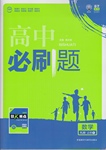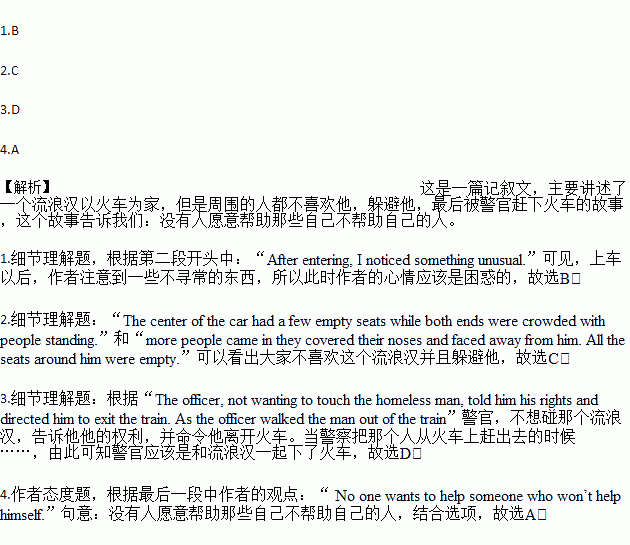题目内容
In our everyday lives we meet situations in which we take many things for granted(不去重视).We only treasure things when they are gone.This is a sad truth of human nature.One day,I found myself as a witness to a similar situation.
One evening,I left work and boarded the train.After entering,I noticed something unusual.The center of the car had a few empty seats while both ends were crowded with people standing.I didn't pay much attention and sat down on one of the empty seats.I sensed a funny smell.It wasn't long before I noticed a homeless person sleeping on three seats in front of me.He was bleeding from his nose.Why wasn't anyone helping him?
His clothes were torn and he was giving off a strange smell.Along with the smell,his eyes were dull,watery and red.Occasionally he scratched himself and people looked at him as if he had committed a crime.As the train stopped at stations and more people came in they covered their noses and faced away from him.All the seats around him were empty.
Suddenly,he began to swear at the people around him.A plain clothes policeman who looked like a construction worker took out his certificate and showed it to the homeless man.The officer,not wanting to touch the homeless man, told him his rights and directed him to exit the train.As the officer walked the man out of the train,the homeless man turned around and said "MY HOME!" and started crying.
A man doesn't value things until they are gone.If he didn't have a home,at least he had freedom.Now he has neither.No one wants to help someone who won't help himself.
1.When entering the car,how did the author feel at first?
A. Annoyed. B. Puzzled.
C. Sad. D. Calm.
2.How did people react to the homeless man?
A. They caught him and called the police.
B. They covered him with clean clothes.
C. They disliked and avoided him.
D. They stared at him curiously.
3.It can be learned that the policeman .
A. was very rude to the man
B. sent the man back to his hometown
C. forced the man to leave the city
D. went off the train with the man
4.What does the author think of the homeless man?
A. He is a loser of life. B. He is worth our respect.
C. He is very funny. D. He is a fearless fighter.
 高中必刷题系列答案
高中必刷题系列答案
